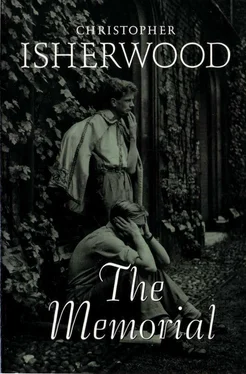Balefanio - tmp0
Здесь есть возможность читать онлайн «Balefanio - tmp0» весь текст электронной книги совершенно бесплатно (целиком полную версию без сокращений). В некоторых случаях можно слушать аудио, скачать через торрент в формате fb2 и присутствует краткое содержание. Жанр: Старинная литература, на английском языке. Описание произведения, (предисловие) а так же отзывы посетителей доступны на портале библиотеки ЛибКат.
- Название:tmp0
- Автор:
- Жанр:
- Год:неизвестен
- ISBN:нет данных
- Рейтинг книги:4 / 5. Голосов: 1
-
Избранное:Добавить в избранное
- Отзывы:
-
Ваша оценка:
- 80
- 1
- 2
- 3
- 4
- 5
tmp0: краткое содержание, описание и аннотация
Предлагаем к чтению аннотацию, описание, краткое содержание или предисловие (зависит от того, что написал сам автор книги «tmp0»). Если вы не нашли необходимую информацию о книге — напишите в комментариях, мы постараемся отыскать её.
tmp0 — читать онлайн бесплатно полную книгу (весь текст) целиком
Ниже представлен текст книги, разбитый по страницам. Система сохранения места последней прочитанной страницы, позволяет с удобством читать онлайн бесплатно книгу «tmp0», без необходимости каждый раз заново искать на чём Вы остановились. Поставьте закладку, и сможете в любой момент перейти на страницу, на которой закончили чтение.
Интервал:
Закладка:
Ronald's friendship with Mrs. Vernon had begun quite naturally, the first time she had attended one of the Society's meetings, some months ago. The effusive lady who organised the Society's affairs had introduced them. They chatted about the place they had come to visit, their eyes asking the question: But why are you here? Neither looked the part of archaeologist.
In appearance Mrs. Vernon was no more than thirty, and yet a curiously mature air of sadness and quietness surrounded her, so that he knew, after a few moments, that she must be ten or fifteen years older. She seemed sad, even though she laughed and smiled and talked in a rapid eager way about old pictures and old buildings. Since he had known her, she had been dressed always in black, which accentuated the fairness of her hair and skin and gave her sometimes absolutely the look of a child.
After the Society's meetings came always the question of tea. Sometimes the places they visited would provide it, free or at a shilling a head; sometimes they had all to make for the nearest confectioner's. At such times, Mrs. Vernon and Ronald naturally drew together, recoiling, without snobbery but by natural instinct, from the rest of the party. They had plenty to talk about. First and foremost, their mutual hobby. Ronald was surprised at her knowledge. It was not great, but it was much greater than he would have expected from a woman. And her feeling for the Past, for the romantic aspect of History, charmed him.
From archaeology, they passed over many topics. He discovered that Mrs. Vernon painted; had painted, rather. She had done nothing, she said, for years. Thus it came about that she asked him to her flat, to tea. The portfolios of water-colour sketches she showed, with many apologies for their faults, made him insist that she ought to have kept it up.
"I haven't cared to," she answered, smiling sadly, "since the War."
And at that moment, though she hadn't made the faintest movement, Ronald noticed on the mantelpiece a silver-framed photograph of a man in uniform. Mrs. Vernon had never spoken to him of her husband. Himself so sensitive, he recoiled immediately, blamed himself for his clumsiness in
paining her with his questions. But she, as though guessing this and wishing to reassure him, had continued:
"My husband was an artist, too. He was far better than I am. I should like to show you some of his work."
How beautifully, he felt later, she had said this.
Though they met often, their friendship grew slowly. But it did grow. Ronald was as shy as a schoolboy. He foresaw or imagined the approach of a snub and drew back long before it reached him. He showed Mrs. Vernon his flat, his small collection of etchings, his few valuable books. They went together to hear lectures at the National Portrait Gallery and the Victoria and Albert Museum.
Lonely himself, having few friends even at his Club, suffering often from the after-effects of enteric fever, which he had developed during the Boer War, Ronald yet thought of Mrs. Vernon's life as being lonelier still. At times, he pictured her as a sort of nun. She seemed so serene and calm. Once she had told him smilingly that her maid had given notice and been gone a week. She had been living, she said, on fruit. She liked it. She was in no hurry to get another. Ronald had been seriously alarmed. He was sure that she would be utterly careless about food, perhaps forget to
eat altogether. She might make herself really ill. She looked as fragile as air. Yet he dared not say anything, lest he should seem to intrude upon her life. It was only by casual and tentative questions that he later ascertained that another maid had been found. Going to tea with Mrs. Vernon a few days after this, he saw the new maid for himself and was infinitely relieved.
For some time he had no idea that Mrs. Vernon had a son. When she did at length refer to him it was quite casually, and yet Ronald felt at once that behind her assumed indifference there was a tragedy. She spoke about something he had done as a boy, and it was as if she were talking of someone who had died. Evidently there was some shady business. Perhaps he'd forged a cheque. Probably worse. Was living in disgrace. And it must have broken his mother's heart. Ronald was a mild man, but he felt himself utterly without mercy in his judgment of that young bounder, who'd behaved so vilely to her. The only thing that could be said for him was that he had the decency not to show himself.
She had spoken to Ronald on more than one occasion of an old house in Cheshire where, he gathered, she had stayed for some years since her widowhood. It was the house of her husband's people. She showed him some of her water-colour drawings of it. And now, she said, this house was shut up and empty, in the hands of caretakers. When she spoke of it, her eyes had tears in them.
Oh, it was cruelly unjust, it was fiendish that she should have so many sorrows to bear. She seemed to have lost everything that she'd valued in the world. And yet she could still be so sweet and gentle, without any bitterness. And he, he'd have gladly been flayed alive if that could have lightened all this sorrow for her by one particle. He grieved over her in secret. He dared say nothing, not one kind word even, for fear that she should be troubled or embarrassed by his interest.
Ronald, with his Japanese warrior's jaw, his ill-health, his etchings and books, could hardly remember that he had ever been attracted deeply by a woman. Except in a purely physical sense, and that was when he was quite a boy; tall, clumsy, ignorant, turned out into a barracks to make his way somehow, being a younger son. He had been a dreamer, then, from shyness. He had protected himself from all that dangerous, half-alluring, half-disgusting side of life by secreting around himself a shell of action, hardship, routine, friendships with brother officers who eventually married and asked him to be their best man. And from this shell of action he had preferred to watch women moving about on the edge of his world, like shapes in water, beautiful, mysterious, with waving tendrils and blossoms. But that was years and years ago.
Now he sat in the Club drinking Sanatogen and
hot milk, thinking with pleasure that tomorrow the Society would meet for its weekly excursion.
They met, that afternoon, in the grounds of the house they had come to visit, an old mansion in the far western suburbs—the country residence of a family which was just about to relinquish it. In a few months the low white building with its Ionic portico, its Queen Anne windows, its long vista of shaven lawns between high elms which did not quite hide a steady stream of cars and buses along the distant road, would be sold, the house pulled down, the land used for building, for allotments, for playing-fields. The boards were already up at the drive gates, and the old caretaker who received them seemed bowed with the sense of impending disaster. The whole spirit of the meeting was tactful and hushed. Permission to view had been obtained as a special favour. There were three Lelys in the long gallery and a landscape by Cotman. They would be sold at Christie's. Some wonderful Jacobean furniture. The family had been driven into hotels, on to chicken farms, away to the south of France. The caretaker was alone, waiting for the enemy.
As Ronald walked slowly up the drive, the moist gravel shrinking crisply under his feet, the air of the avenue, bare as it was of leaves, clammy—it must always be clammy in that low-lying spot—
he was filled with the oppressive yet faintly pleasing reverent sadness which he so often experienced on these occasions. Mrs. Vernon was standing on the steps of the house. She smiled.
"I've been waiting for you," she said.
It was not the first time that this had happened. It was, to him, one of the most charming intimacies of their friendship that she liked to see everything at the same moment as himself, comparing impressions and scraps of knowledge with him.
Читать дальшеИнтервал:
Закладка:
Похожие книги на «tmp0»
Представляем Вашему вниманию похожие книги на «tmp0» списком для выбора. Мы отобрали схожую по названию и смыслу литературу в надежде предоставить читателям больше вариантов отыскать новые, интересные, ещё непрочитанные произведения.
Обсуждение, отзывы о книге «tmp0» и просто собственные мнения читателей. Оставьте ваши комментарии, напишите, что Вы думаете о произведении, его смысле или главных героях. Укажите что конкретно понравилось, а что нет, и почему Вы так считаете.





